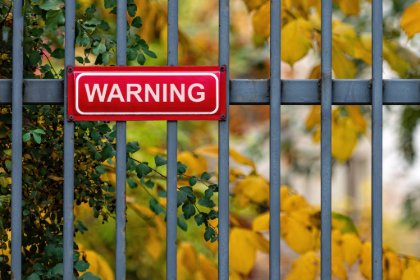

Call (225) 769-2900
Welcome to Louisiana Title Services, Inc.
Blog
07/08/2025
Title issues can be very problematic and overwhelming. They may even put your claim on the property in jeopardy! But how do title problems happen? Learn more about this so you can stay away from them with this post by Louisiana Title Services Inc. in Baton Rouge, LA.

When you purchase a home, you expect the property to come with clear ownership. After all, you’re paying a significant sum for what’s likely the most important investment of your life. But what happens if, months or even years later, someone else shows up claiming ownership? Or you discover an unpaid lien that becomes your responsibility? These are examples of title problems, and they’re more common than most people realize.
Understanding how title problems happen is essential to protect your property rights and avoid costly surprises. Here’s a closer look at the causes behind title issues and why due diligence—and title insurance—matters.
Title issues can be incredibly overwhelming. If you need assistance staying away from them, call Louisiana Title Services Inc. in Baton Rouge, LA at (225) 769-2900 for all of your title services needs.
What Is a Title?
The title to a property is the legal right to own, use, and sell it. When you buy a home, part of the closing process involves confirming that the seller has the legal authority to transfer that ownership to you. That’s where a title search comes in.
A title search reviews public records to verify ownership history and uncover any issues such as liens, easements, or errors. However, even a thorough search may not catch everything—especially if problems are hidden or undocumented.
Common Ways Title Problems Happen
1. Unpaid Liens
One of the most frequent issues is a lien placed against the property by a creditor. This could include:
- Unpaid property taxes
- Contractor or mechanics’ liens
- Unsettled court judgments
- Unpaid homeowners association (HOA) dues
These liens can remain attached to the property—even after it's sold. If they aren't discovered during a title search, the new owner could become financially responsible.
2. Clerical Errors in Public Records
A simple typo or misfiled document can cause long-term title headaches. For example, a misspelled name or incorrect property description in a deed or mortgage record can create confusion over rightful ownership.
Although these may seem like minor issues, they can delay or derail future transactions if not corrected.
3. Unknown Heirs or Family Disputes
If a previous owner passed away without a clear will or proper estate planning, heirs may come forward later claiming ownership. This can lead to disputes, especially if property transfers occurred without full legal clarity.
Title searches often include probate records, but missing or undisclosed heirs can still appear after closing.
4. Forged or Fraudulent Documents
While less common, fraudulent activity can create significant title defects. Examples include:
- A forged signature on a deed
- A fake seller transferring property they don’t own
- A scammer posing as a notary or executor
These acts can void legal ownership, leaving innocent buyers in a legal battle.
Call Louisiana Title Services Inc. in Baton Rouge, LA at (225) 769-2900 for more information about possible title issues you may come across and how you can steer clear of them.
5. Illegal Deeds in the Chain of Title
Even if a past transaction looked legitimate, a previous owner may not have had the legal capacity to transfer ownership. Common scenarios include:
- Minors selling property
- People with mental incapacity signing deeds
- Unauthorized agents or guardians
If any deed in the chain of title was invalid, it could affect the legality of your current ownership.
6. Easements or Undisclosed Restrictions
Easements give others the right to use part of your property—like utility companies accessing power lines. If these aren’t disclosed during a title search, you may be surprised when someone starts digging in your yard.
Zoning violations, covenants, or usage restrictions can also cloud the title and limit your property rights.
How to Protect Yourself
Because title problems can emerge long after purchase, it's important to take proactive steps:
- Hire a reputable title company to conduct a detailed title search before closing.
- Purchase title insurance, which protects you (and your lender) from financial loss if issues arise.
- Keep good records of all closing documents, deeds, and communications related to the property.
Coming across title issues can be a scary occurrence. However, it doesn’t have to be! Call Louisiana Title Services Inc. in Baton Rouge, LA at (225) 769-2900 for more information on how their title services can keep your real estate investment safe.
Contact Us
Our Location